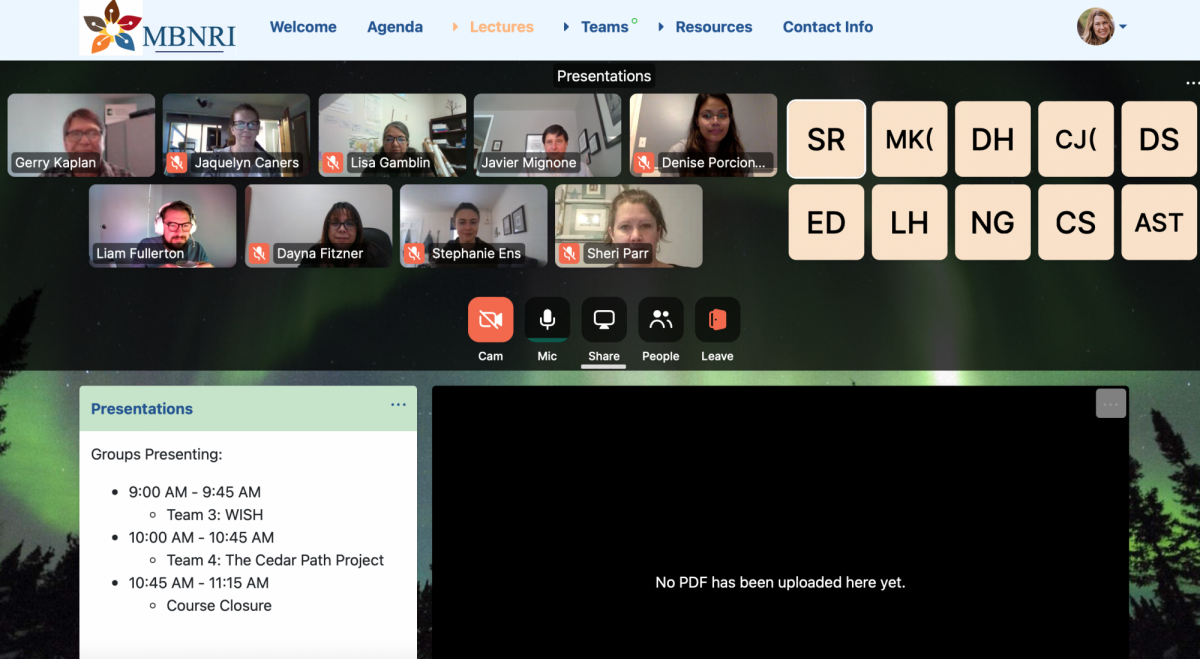
Real-life skills, online
Every professor hopes they give their students practical knowledge they can use in their career, but Dr. Javier Mignone knows his students leave his class prepared for real-world experiences.
Every professor hopes they give their students practical knowledge they can use in their career, but Dr. Javier Mignone knows his students leave his class prepared for real-world experiences.
Mignone teaches program evaluation, how to assess the performance of a program and how to measure if a program accomplished what it set out to do. He helps run the Manitoba Northern and Rural Institute in Program Evaluation (MBNRI,) a program that brings students and community members together to discuss evaluation techniques and to work together to create evaluation plans for local non-profits.
“It’s a real service to agencies and it enriches the student experience because they’re working on real-life problems, not just academic exercises,” says the community health science associate professor at the Max Rady College of Medicine.
Participants work with non-profits in the community over the course of six weeks to measure their impact and look for ways they could be more effective.
Jacklyn Caners is a psychology student at UM. She had taken other courses with Mignone and sought this one out specifically to learn more from him and because she thought it would help her pursue her eventual goal, social work.
“Even just getting hands-on experience of doing something I’ve never tackled before was huge,” she says. “I can see myself applying this in my job applications and [it] having a positive impact. It’s something really unique on my resume and something I think I’ll really draw from.”
MBRNI sprung from Program and Policy Evaluation Research Group (PROPER,) a community hub where students, community-serving agencies and faculty members can collaborate and share knowledge on policy evaluation.
This year, students met with four different non-profits: Macdonald Youth Services, Manitoba Youth Hubs Initiative, the WISH Clinic and the Cedar Path Project.
Split into four teams, 30 undergraduate and graduate students from UM and UW gathered digitally to learn more about program evaluation, discuss Indigenous ways of knowing and develop and present their evaluation plans for the non-profits. Not only do students network with agencies in their community, but they also know they’re making a real difference when their plans are implemented.
The non-profits also get the opportunity to hear fresh perspectives from the students they’re working with and a new plan to understand how effective their efforts have been.
The WISH Clinic is an interprofessional student-run health clinic. They have been developing a way to measure student volunteers’ understanding of the group’s three pillars, 2SLGBTQ* positive, pro-choice, harm reduction, before and after volunteering.
“Most of all, what our organization gained is education and a team that would help us conduct the research. We gained the research that will help us learn and grow as an organization and help us do better,” says WISH Clinic facilitator Liam Fullerton. “The biggest takeaway is that MBNRI offered us tools to improve our organization in ways we didn’t know we could improve.”
This year’s institute focused primarily on Indigenous organizations, with a focus on Indigenous ways of knowing. Participants heard a presentation from Wanda Philips-Beck, an Anishinaabe nurse and research chair with Research Manitoba, on the history of research with Indigenous Peoples, the importance of evaluation and ethical considerations.
“Learning an Indigenous approach to evaluation is important. It’s an approach centered around ethics with respect to Indigenous communities and world views,” says Mignone.
While MBNRI is mainly for students and non-profit groups, Mignone says he also gets a lot out of organizing it.
“I get to know so much about the interesting work that agencies do. I’m always surprised at how much is being done. They’re not large-scale things but there are tons of small organizations that are doing valuable stuff,” he says.






